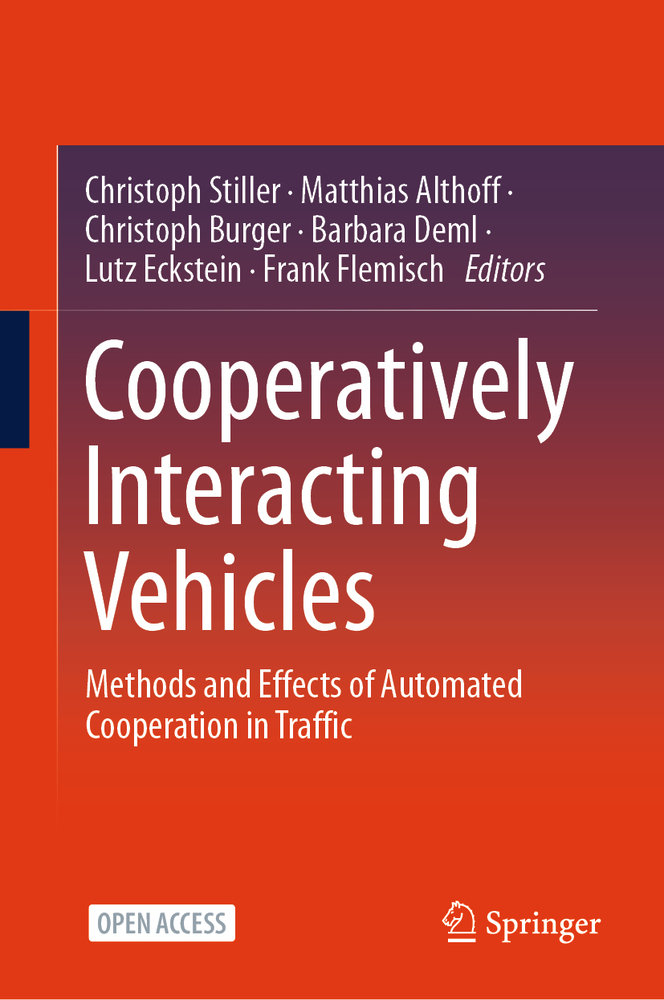Christoph Stiller studied Electrical Engineering at Aachen University, Germany, receiving his Diploma and Dr.-Ing. degree in 1988 and 1994. He was Postdoc at INRS in Montreal, Canada, before joining Robert Bosch GmbH. In 2001, he became Professor at Karlsruhe Institute of Technology. He has undertaken sabbaticals at CSIRO in Brisbane, Australia, Bosch RTC/Stanford University, and University of California Berkeley. He is IEEE Fellow, has held editorial positions for several IEEE Journals and served as President of the IEEE Intelligent Transportation Systems Society.
Matthias Althoff received the diploma in Mechatronics and Information Technology and the PhD degree from Technische Universität München, TUM, in 2005 and 2010. From 2010 - 2012 he was a postdoctoral researcher at Carnegie Mellon University, USA. In 2012, he joined Ilmenau University, Germany and TUM in 2013 as assistant and since 2019 as associate professor. His research interests include the design and analysis of cyber-physical systems, formal verification of continuous and hybrid systems, reachability analysis, planning algorithms, robust control, and safe machine learning. Main applications of his research are automated vehicles, robotics, power systems, and analog and mixed-signal circuits.
Christoph Burger received his B.Sc. and M.Sc. degree in mechanical engineering from Karlsruhe Institute of Technology (KIT) in Germany. He conducted his doctoral research at KIT, focusing on the research of cooperative, interaction-aware motion planning for automated vehicles. In 2022, he received his Dr.-Ing. degree (Ph.D.).
Barbara Deml studied psychology at the University of Regensburg, Germany, and received her doctorate in engineering from the University of the Federal Armed Forces in 2004. After post-doctoral work she was appointed to a junior professorship in Cognitive Ergonomics. In 2009, she followed a call to Otto-von-Guericke University Magdeburg to head the Chair of Ergonomics. Since 2012, Barbara Deml has headed the Institute of Human and Industrial Engineering at the Karlsruhe Institute of Technology. Her research focuses on the design of new work systems, such as robot cars.
Lutz Eckstein studied Mechanical Engineering and received the Diploma and Dr.-Ing. degree (Ph.D.) from Stuttgart University, Germany, in 1995 and 2000. After four years of research at Daimler-Benz AG, he was responsible for Active Safety of ADAS. In 2005 he was appointed senior manager HMI & Ergonomics at BMW AG. In 2010, he became Chaired Professor at Aachen University for Automotive Engineering. Since 2023, he serves as President of the association of German engineers, VDI. He is member of the Scientific Advisory Board of the German Government and coordinator of the large scale project UNICARagil.
Frank Ole Flemisch started as aerospace engineer with a specialization in systems engineering and system dynamics. He did research on assistant systems and automation at University of Munich, NASA and DLR, served as the lead of a national standardization group and a technical expert in ISO TC204. He was involved in coining the terms highly automated driving and cooperative automation. Since 2011 he is leading a department of Human System Integration at the Fraunhofer FKIE, is Professor for Human Systems Integration at the Aachen University, and member of the NATO-STO Human Factors and Medicine Panel. In 2024, he was appointed principal scientist and Human Systems Evangelist of Fraunhofer FKIE.



